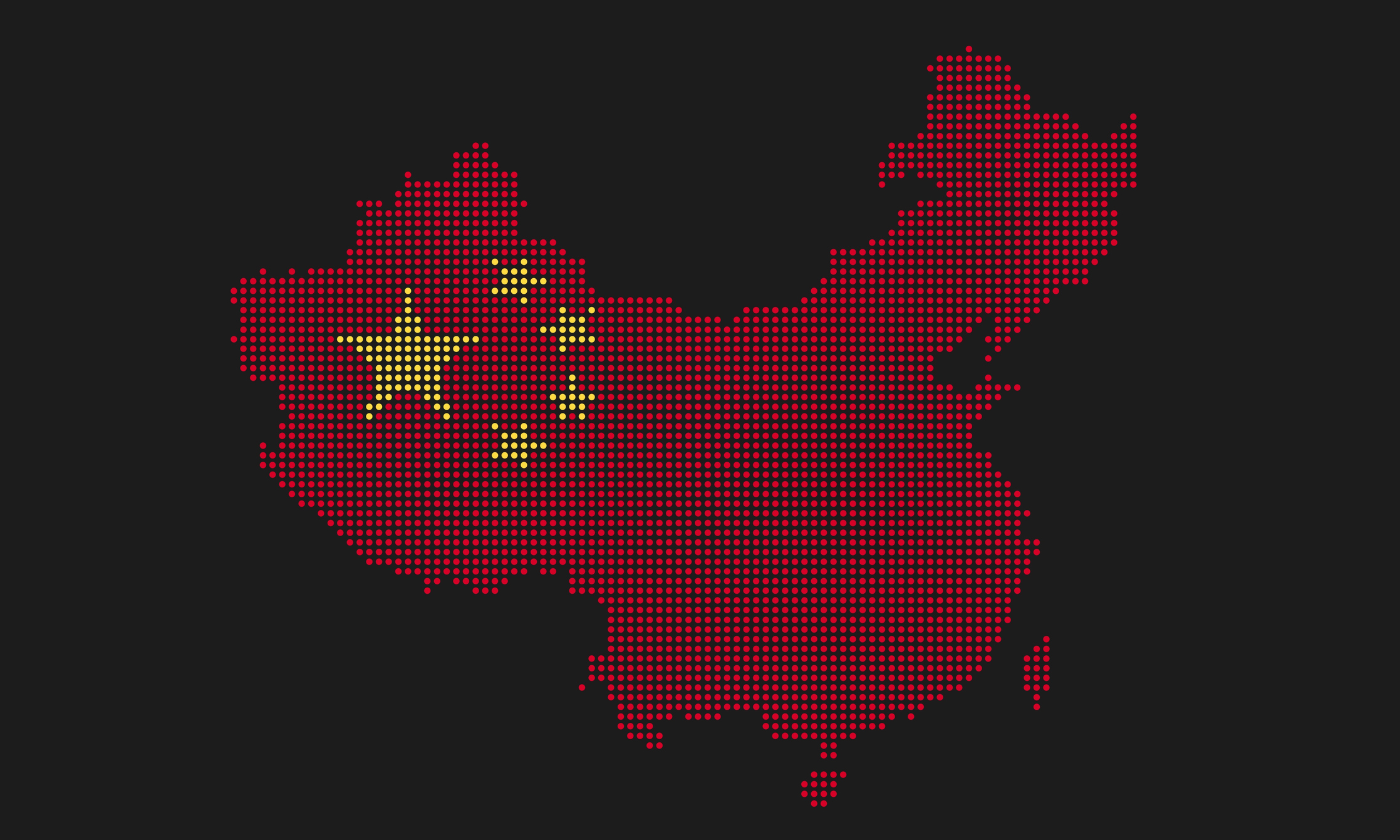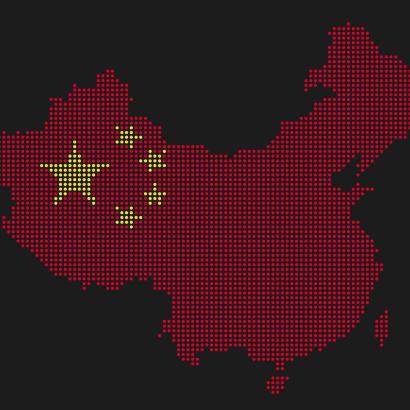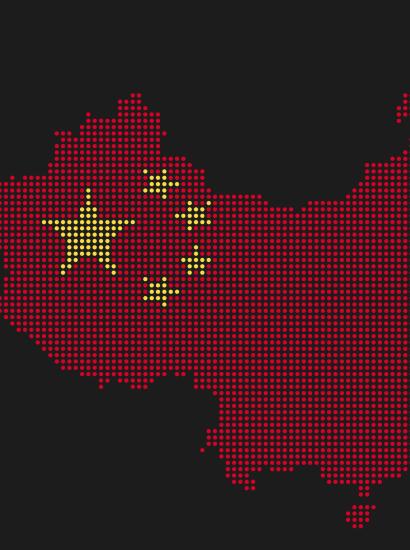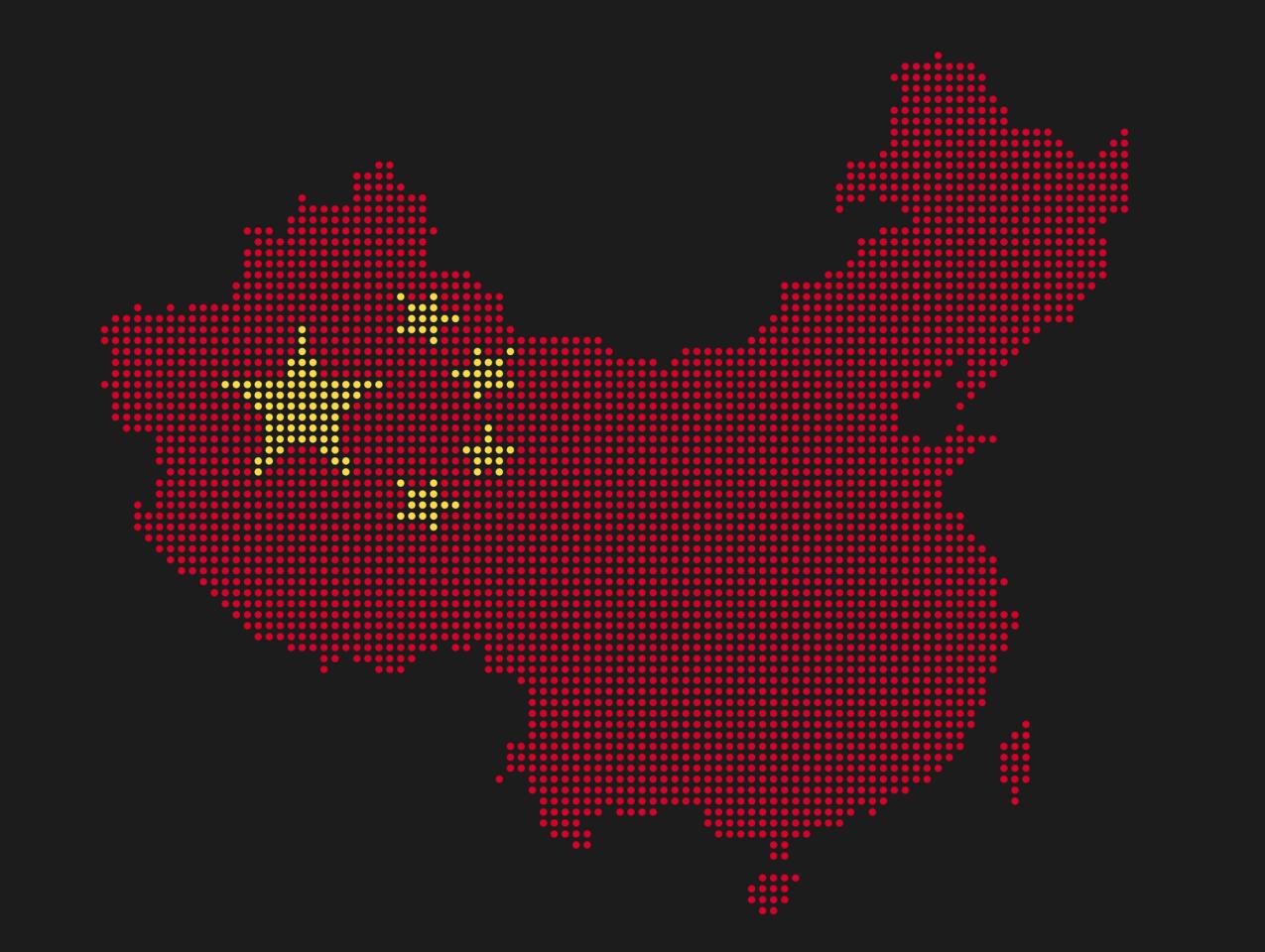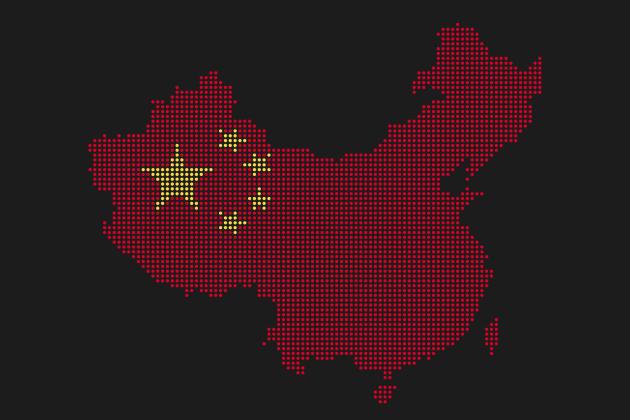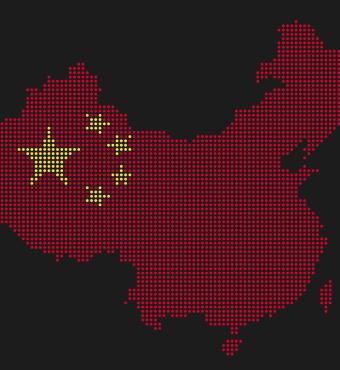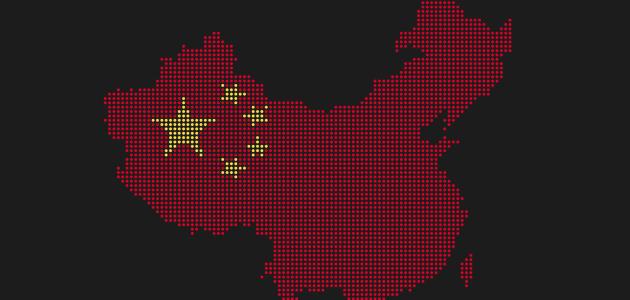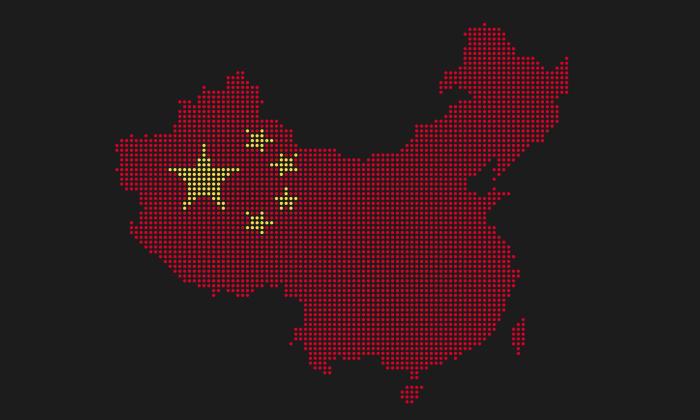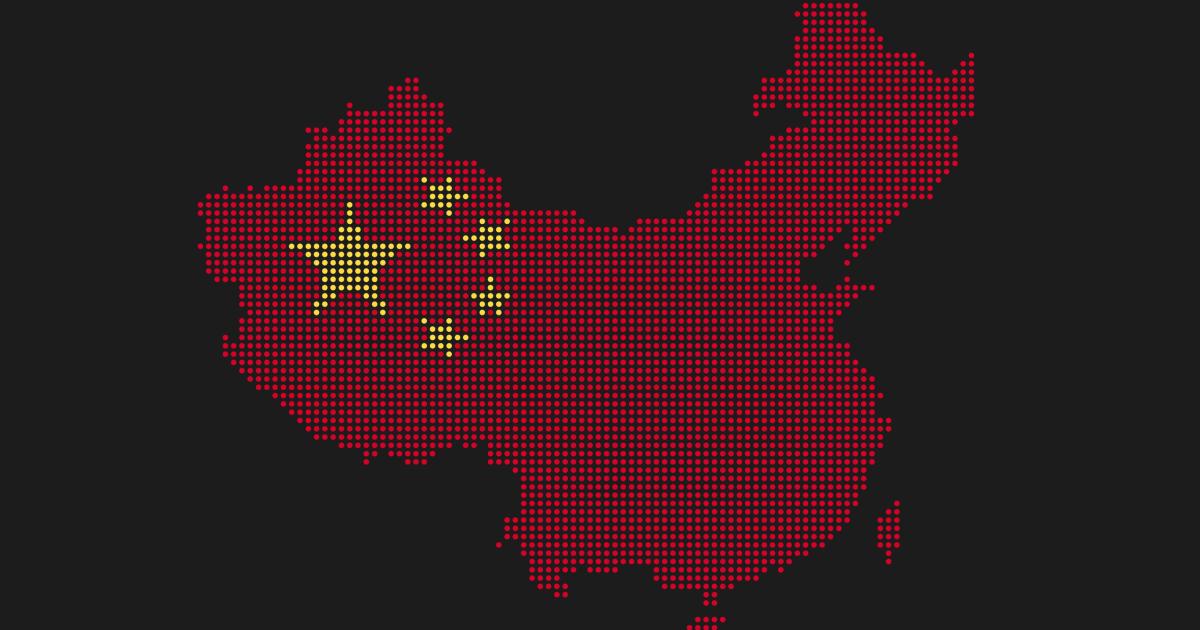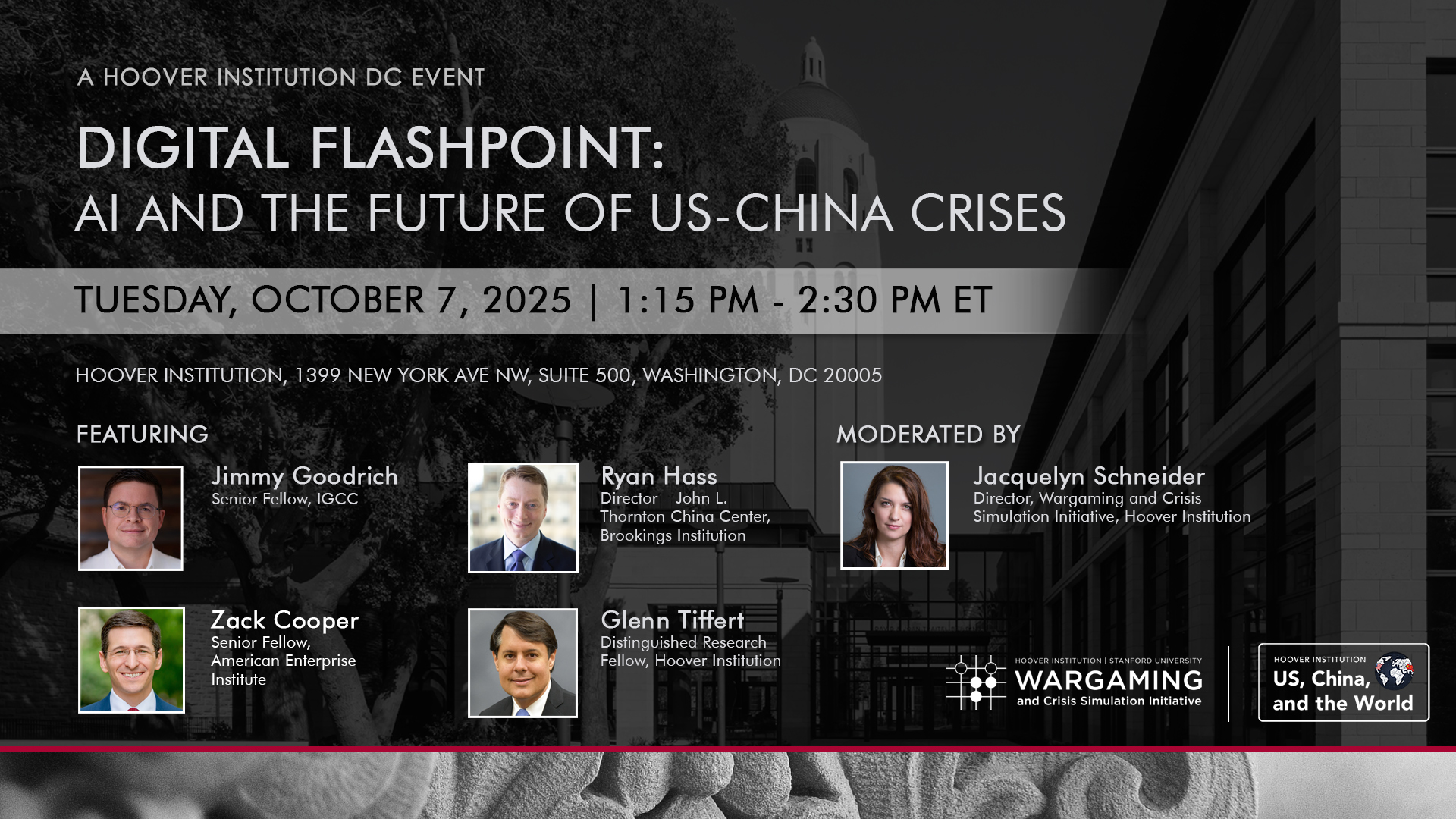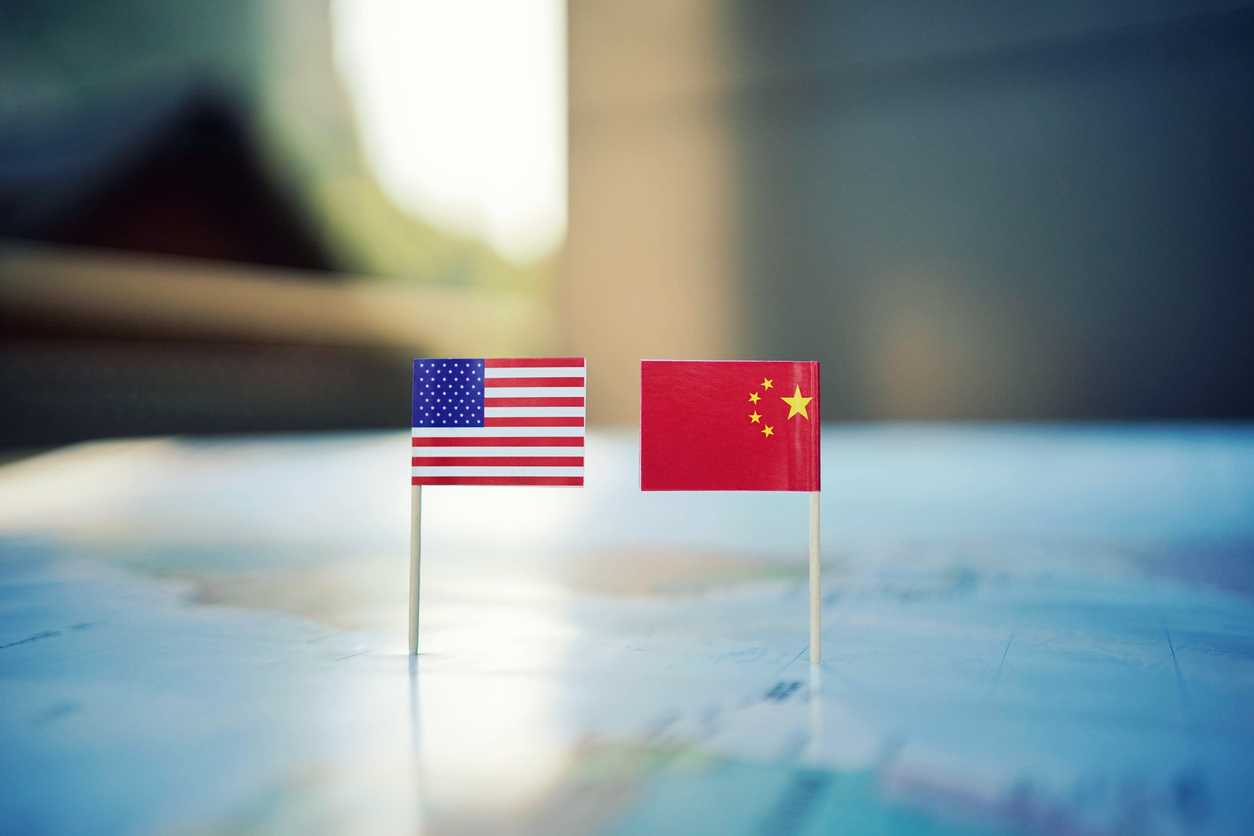Hoover Institution Fellow, Jacquelyn Schneider held a panel discussion at the Hoover Institution in Washington, DC on Tuesday, October 7, from 1:15 - 2:30 PM ET.
The panel discussion was in person, commencing with a conversation with Jimmy Goodrich, Senior Fellow at UC Institute on Global Conflict and Cooperation, Ryan Hass, Director – John L. Thornton China Center, Brookings Institution, Zack Cooper, Senior Fellow at American Enterprise Institute, Glenn Tiffert, Distinguished Research Fellow at Hoover Institution, and moderated by Jacquelyn Schneider, Director, Wargaming and Crisis Simulation Initiative at Hoover Institution.
The panel featured a discussion on how future crises between the United States and China will be shaped by the role of artificial intelligence, from military decision-making to information warfare. This panel explored how AI could either stabilize or dangerously escalate a conflict between the two nuclear powers. Experts discussed the technical and political challenges of managing AI in a crisis, and how to prevent a "flash war" from an algorithmic miscalculation.
- I wanna welcome you all today. Thank you for coming kinda in the middle of the day in a government shutdown. But we're talking about something that I think is extremely important, which is the role that AI might play in the US China relationship, and in particular, the role that AI is going to play in whether or not the US and China end up at war with each other. So we're really lucky to behave to have an extraordinary panel. We have Zach Cooper, who is a senior fellow at the American Enterprise Institute, Ryan Haas, the director of John L. Thornton China Center at the Brookings Institution. Glenn Tifford, one of my colleagues at Hoover, a distinguished research fellow, and we have Jimmy Goodrich, who's a senior fellow at the uc Institute on global conflict and cooperation. And little kind of segue into this panel, we actually spent the morning here in this room playing a war game. And the war game was called AI Gone Awry. It's a game that we've been playing with my colleagues at CSAC for the last two and a half years. And the idea behind the game was to look at how an AI enabled weapon system would affect the chances that us and China would end up at war. We spent two and a half years playing with Americans and, you know, told our, our funders who said, we're trying to tell you something, but we don't have Chinese players that show up to the game. So in this iteration, we actually flipped the game. And in this game that we just played this morning, we recruited all China experts and we said, okay, now you are telling Xi Jinping what you think we should, what you think the Chinese should do about implementing an AI enabled weapon system. Tell us how the crisis unfolds. So it was a, a great preamble to where we are today with this panel, because I think what the game reveals is how our preferences about ai, our beliefs about human versus machine control, how important they will be in crises. And so it's really important to understand where there are similarities between the US and China and where there are significant differences and what we can do in the US to maybe decrease the chance of inadvertent escalation or accidents and increase the chance of deterrent success. So with no further ado, I wanna start with a really big picture about the US China relationship, and Zach recently published a book that I highly recommend to everyone that looks at historical cycles of the rise and fall of powerful nations. So what does your book say about us China and what do you think the possible trajectory is in the future?
- Well, first, Jackie, it's wonderful to get a chance to spend today with you and with such a wonderful panel. I I think all of us have studied this in, in some respects, but I'll just give you a quick summary of of my view, which is that the United States has seen China certainly rise in relative terms. And I know this makes Americans uncomfortable sometimes, but that means that in relative terms, we have declined. And so I think this is sort of a, a particularly challenging moment because when you look back at the cycles of rising and declining powers, often the moment in those power transitions that starts to get really difficult is when the rising power starts to believe that they've passed the period where they were weak and they've now become strong and they often really start to change their behavior in, in quite substantial ways. They do things like build power projection militaries, which we're now seeing China do. And it, I would say, and and Liz economies in the audience wrote a book about this, you know, some of that confidence really started probably around 2008, 2010, but over the last 15 years it's just accelerated. So I think some of what we see, and this certainly played out in the game this morning, is that you have a China now that is increasingly confident. And you know, if you were to play these games a few years ago, I think the Chinese team was often very hesitant to engage in escalatory dynamics that they weren't sure they could control. I think now sometimes when you play the Chinese team, at least as an American, you feel much more willing to take some risk and escalation, which includes potentially escalating with artificial intelligence tools that you might use on the battlefield.
- And let's talk very a little more specifically about ai. So your, your book is basically about power politics. Now the way power is created is through a variety of ways, but one of them is, or at least we have an assumption that one of them is a technological power. And I think you we're in DC this kind of discussion about competition and technological competition between the US and China is everywhere and the US China, it's the, the arms race, the, the AI arms race, the AI arms competition that, I mean, you fill in your blank, right? So I'm interested from your perspective, how do you think AI changes or does it change the balance of power between the United States and China, and is that, is that a good change in balance of power that leads to peace and stability? Or is it one that could lead to conflict and escalation?
- So Jimmy and others who've really spent time studying this may have different views. I, I guess my initial instinct is that part of the challenge is that we need to be able to assess power similarly to the Chinese if we're going to avoid misunderstandings and misperceptions about power dynamics. And I think part of so difficult in the AI world is I'm not sure that we know how to ex un even understand the role that AI is going to have on our economies on the battlefield. And I'm definitely not sure that we share that understanding with our Chinese colleagues. And I mean, Ryan, you know, you spent a lot of time with them talking about these issues. My instinct from talking with some Chinese counterparts is that their way of thinking about artificial intelligence is very different in some areas. So I think one of the challenges is going to be that we may just have different ways of thinking about what AI can be done, can what effect it has either economically or militarily. And I don't know how we get on the same page, right? You know, on the military side with the, the work that you've done, right on how people think about UNC crewed systems, for example, one of the real challenges is a lot of this is cultural and another challenge is that until they actually see them in action, they often don't know what sorts of assessments they should be making. And so I worry a little bit that on artificial intelligence, we are not gonna really know the answers until we see it used on the battlefield.
- So do you think that this is a zero sum competition?
- I I think in the long term we are in a systemic competition. I think we can take steps right now that can avoid the short term being zero sum. But I, I do think, you know, we, we all have a lot of discussions about what the end states are in US China competition, and I'm one of those who believes that, you know, we're in a competition to see which of our two systems can deliver results better. And so in a sense, I do think that means that there is a, in the very long term, sort of a, an inherently zero sum aspect of the competition.
- Well, I wanna move to Ryan. Ryan, you lead a track two dialogue between the US and China, specifically on artificial intelligence. And this dialogue has remarkably lasted over multiple presidential administration. So at this point you've probably seen kind of a, a trajectory about how that relationship is developed, but also, you know, our beliefs and perceptions about AI and that great competition, zero sum competition we're just talking about. So based on your experience with the dialogue, and maybe you could tell us a little bit about what that dialogue is. How have you seen the Chinese conversation about AI and AI danger shift and where do you see like convergence in how we understand AI between US and China? And are there things that, you know, we fundamentally diverge about when we're talking about, like you mentioned, how do we all understand what AI is? Are we even in the same competition between US and China and ai?
- Well, I mean, that's a great question and I'll try to do justice to it, but Jackie, I hope that you'll fill in anything that I missed because you are also an integral member of this team. Jackie is absolutely right. This AI dialogue started in I think 2018 before it was super cool to be working on AI issues. And it has lasted through three presidential administrations of pandemic. We've had plenty of opportunities to walk away and both sides have continued to see value in coming back to the table again and again and again. And we'll meet again in about a month to continue the conversation. To, to build on some of the points that Zach was making, I've noticed a, a sort of an observable shift in the way that the Chinese have approached these discussions. They, at the outset, I think they were sort of cautious followers. They wanted to get a better sense of where we were, how we were thinking about how we were working through some of these problems. I think that there's much more confidence in leadership now around discussions around ai, but particularly in relation to AI safety than there was at the outset. And that's, that's a major distinction. Another big distinction I think is around the term of artificial general intelligence or this idea that whoever reaches this, this special line and crosses it first will have windfall benefits that will have, you know, enduring strategic advantage to that party. I'm not sure that the Chinese necessarily subscribe to that, that viewpoint. I think that they have a different, a more holistic interpretation of AI and the diffusion of AI throughout society, throughout the economy as providing the basis of their power and, and influence as opposed to some, you know, narrow technological advantage that could be accrued on the battlefield. Those are some of the differences. Some of the similarities though, I think that we've, we've come awai both sides acknowledge that customary international law needs to guide the use of AI in weapon systems. Both sides have really firmly, I think acknowledged the important role of human oversight and control of AI enabled weapon systems. Both, both teams have firmly come around to the view that humans must maintain control overall nuclear launch decisions, which is a, a body of work that culminated in a announcement between the two leaders, president Biden and President Xi last November. That, that that should be the case. And, and my understanding is that that agreement still holds to this day even, even with the change in administration in Washington. And then at a, you know, slightly more technical, but I think important level, both sides have come to understand the importance of building a glossary, a definition of terms, so that when we each talk about these things that, that we're going to talk about today, we have a precise understanding of what it means for the other side and, and the body of terms exist on, on the website. It's a glossary that that is sort of a living document that we're both continuing to build on.
- Well I mentioned the war game that we just played right here at Hoover, dc but there was a version of this game that we got to play in Bali as part of the track two dialogue.
- I try not to advertise the venues for these things, but
- It was not the US China crisis simulation. Instead it was our state versus other state and we mixed the teams. So we had us and Chinese delegations playing as teammates and we, but we introduced the same AI enabled weapon and spoiler alert, the AI enabled weapon goes awry. That was a big learning moment for me sitting and watching. And I think I had one of the more interesting characters in the Chinese delegation in our group, but I was interested from your perspective, like what do you think are, and like from that game and all the other dialogues in terms of the integration of AI into, you know, the PLA versus the US military, do you think that these are kinda like fundamentally different or do we come to it from the same kind of concerns about technology and control and you know, making sure that, you know, the, the robots don't take over?
- Right. Well it's a, it's a really interesting question. I, I don't even know where to start. I, I think that the Chinese have gained much more confidence in their discussions about these things than they had at the, at the outset. The, one of the interesting things that for me at least sitting down with Chinese counterparts on a continual basis to talk through these issues is it becomes very apparent very quickly that they are struggling with many of the integration challenges and questions that we are as well. And, you know, behind that opaque wall of the Chinese system, sometimes it's easy to assume that they've got it all figured out and we're, you know, find fumbling our way forward. It's, it's ab absolutely the inverse. We are both sort of working in parallel to each other through a similar set of, of challenges and problems. One sort of macro observation I would offer though is that the United States has a different sort of mode of civil military tradition than the Chinese does. We are much more comfortable delegating authority and decision making to operational levels, whereas the Chinese system is still, I think, much more committed to ensuring that any operational action aligned with the, the direction that the top leadership provides. And so there is a degree of flexibility versus inflexibility that I think becomes apparent throughout some of these discussions. Another issue though, and this somewhat contradicts what I was just saying, is that the, the Chinese that we sat with basically said if the system is there, we're gonna use it, right? And, and the, I guess it it rest on assumption that a system would not be put in place on a battleship or whatever else unless it had been thoroughly tested, vetted and prepared for operational use. So those are, you know, just a few of the
- Yeah, and I, that's actually such a huge difference from the US sided of those games that I play because my US players, especially my military paper players, when they come to the game, they have a lot of really sophisticated questions about how the weapons were tested, the ways in which they were evaluated. They don't inherently trust because they've been given a weapon system and told they can use it, that they should use it, which was really interesting. There is a, you know, a real kind of ability to interrogate technology even at the very lowest levels of American military decision makers. And that was my impression as well in our interaction with their Chinese counterparts is they were less likely to question that decision once it had been put on the ship and was ready to go. So I think the, I think the other thing that really has been interesting to me is that in that dialogue, our counterparts often asked us questions about AI implementation and we said, oh, the, the US has a document for that. We have a doctrine, we have a policy, and they, and here it is, it's on the internet, you can have it, you know, so we were like very like open with them and I think when we would go back and ask for similar documents, it wasn't, I don't think it was necessarily that they were keeping the documents from us, but that there were no public documents, right? It was unclear whether the, the thinking had not been done or whether the documents didn't exist. But I think they were equally surprised that we were like, oh yeah, yeah, we, we published that. It's on our, you know, government documents page. You know, that's, that was a big surprise. And so it's hard to tell on those dialogues for me. And I am, I'm really a, you know, I am, I am not the astute diplomat that Ryan is, but it is surprising for me as kind of a social scientist onlooker how open Americans are compared to, you know, our counterparts. And I can't always tell if it's because they haven't yet thought about that issue or they're not going to speak about the issue. And I, I really don't know. 'cause both of those I think can be used rather instrumentally,
- Right.
- If necessary.
- Right. No, I agree. So one other observation that I would offer before we turn over Glen and others is that this is a, a bit adjacent to the tabletop exercise that you're talking about, but one of the issues that our Chinese counterparts are absolutely fixated on is domestic security implications of uses of ai. And I think for us who live in the chaotic wild media ecosystem of the United States, we're used to all kinds of crazy stuff floating around and being, you know, going viral or not. Whereas in the, the Chinese system, the idea of AI enabled misinformation, disinformation, DeepFakes floating around, you know, increment, you know, it's sort of doing damage to the reputation or image of the Chinese leader or leadership is a source of profound anxiety and concern in ways that I think it's taken us some time to fully appreciate.
- Yeah, I, I do remember there was one incident that occurred really at the beginning of me joining the dialogue where the Israelis assassinated someone in Iran and the rumor was that they had done it with this like autonomous machine gun and there was a lot of questions about this autonomous machine gun, which we thought we were like what? So it was just interesting the different kind of concerns and where they saw risk versus the US delegation. So Glen, I wanna, I wanna turn to you and you and Jimmy, I have you both on the panel because I think you can help us understand, we just spent the, the beginning part of this conversation about how AI drives competition and conflict, what perceptions of AI and conflict are for US and China. But there is kind of underneath the surface also the production of ai, which is both a hardware component and a talent component. Glen, you've done a lot of work looking at what I would consider the, the talent arms race between us and China on artificial intelligence. So can you talk a little bit about that, that competition over the talent base and then you've done specific research into academia and you know, we live in a world in which who, you know, the access that Chinese students have to academia is really in flux, right? So love to hear your thoughts about the role that academia plays in this talent and then, you know, where is that competition for talent right now?
- Yeah, thank you so much Jackie. I mean I wanna pull on some of the threats that have already been raised and maybe by starting with three points. You know, one is at this particular moment I think we're at a tipping point in which China is reaping the benefits of more than a generation of massive investment in its s and t ecosystem and its basic educational infrastructure. So coming online are very large numbers of well-trained scientists at every level at the undergraduate level, even at the sort of vocational level who are working in the AI industry, but also at the top tier international level as well. Simply because they've invested in the infrastructure to produce that kind of talent. And so they're reaping those rewards in a country that has four times the population of the United States. I think at this point just on the numbers will outproduce us. And we're seeing that now in the number of AI workers. We're seeing that in the number of publications, top tier publications that are appearing in international journals. They are to an extent seizing the mantle just on the numbers. Now what they're able to do with that and how they're able to action it, I think is the big question mark. The second point I wanna make about that is that it is not just about us. China's pursuing this really for its own reasons and some of it is domestic security. Some of it is that Xi Jinping has put a mark on the wall and he sees that the future of the Chinese economy lays in transitioning to high technology, these new productive forces. And AI is one of the enabling technologies that he hopes will bootstrap the Chinese economy and catapult it forward ahead of the sort of lagging industrial economies of the United States and Europe and so forth. So for him it's the Hail Mary pass and he's willing to invest whatever it takes. I think in doing that. And in some sense China's ecosystem of AI is kind of the adverse of the American in that only recently has, they've been getting the attention for a GI and LLMs in China, partly fed by the US obsession with that, but much more so they've been investing in AI for industrial ecosystems manufacturing, AI driven humanoid and non humanoid robots, AI use for drug discovery, for new materials, for industrial processes because it, it is meant to turbocharge everything that China wants to achieve across the entire technology and industrial stack. And the US is not quite deploying AI in that way with that emphasis. And so we really sort of see a flip a mirror image of the two nations Now in China, most recently the venture capital markets have seized up in ai and so you're seeing a lot of state directed investment grabbing attention and the human talent I think is flowing in that direction, responding to state priorities. Now, you know, state direction, too much of the heavy state hand could end up retarding China's development in AI if they're just allowed to pursue particular angles. And then the third part is, I just want to expand the idea of what the AI battlefield is. AI means a lot of things, as I just suggested. AI also means economic competition, not just pure military competition. Their ability to make things faster, make things better, innovate more quickly is also a realm of US China competition. But there's also a sense in which AI can be incorporated into relatively low cost weapons systems that flood the international market and change the game for a lot of countries around the world. As we saw in the war between Armenia and Azerbaijan, how drones played a decisive factor in tipping the balance on the battlefield. Suddenly the appearance of relatively low cost AI powered weapons systems for countries that had not access to them before, I think will be a game changer internationally and maybe also destabilizing.
- I think that's one of the real challenges with this whole kind of AI, great power competition is that there's kind of a, it's really difficult to disentangle what is investment in AI that is not zero sum, that is potentially kind of good for global economies. An AI that is both increases the relative balance of power in terms of economic power and actually weaponizes data. So when you were speaking, you talked a little bit about the role that ai, that the Chinese focus on AI have import infrastructure and how they've really doubled down on AI for these kind of infrastructure software. Well that's great for Chinese businesses, but that's also a national security threat, right? So you, you know, if there were to be a conflict over Taiwan and you need to, let's say all we needed to do was provide them with humanitarian aid during that time period, the Chinese would have remarkable insight into where the flows of of humanitarian aid trade, what's happening in these ports and what's going where. So, you know, it's really difficult to disentangle. I think also the academic question is really difficult to disentangle. I've heard both sides of the, the coin on one side, let's bring in the top talent from China, let's train them at our top universities and then let's employ them at our top businesses because we're stealing basically their talent. And then the other argument, and we've, we've seen this play out where, where is the line between a civilian talent that's trained in American academia and Chinese spies that are stealing intellectual property or that we're raising up and then they're going back to China with all the resident knowledge that we've provided them. And I think a lot of the Trump immigration policies are trying to deal with this complexity or at least recognizing that there is a complex problem here and they have a, they've offered a relat relatively a relatively simple solution to the complex problem. So I, this is kinda the beginning of this, these policies. What do you see as the challenges for these policies about academia and Chinese involvement? How would you assess their effectiveness?
- Right? So you can have two things, intention be true at the same time. There is absolutely espionage and leakage of technology and knowhow going to adversarial parties around the world, not just China. On the other hand, America's superpower is its openness, it is its ability to attract talent from around the world. And so there are things that we can do on the protect side, absolutely to be conscious of where the capital that's investing in our companies is coming from. Is it clean or predatory capital to ensure that there are good insider threat programs in the, in the firms that are developing AI in the universities that are developing AI to know who your postdocs are, know who your students are. But ultimately it is about retaining that talent in the United States and ensuring that America is just the most welcoming, desirable place for that talent to reside and work. Also, having all of those controls in place so that we can in fact attract the best brains and actually leverage them to, to create kind of world that we want to live in. And so the protect and promote side have to go hand in end together and that's really the solution here. And I worry that if we lean too far one way or the other, we're out of balance then we're not serving in our interests.
- So moving from the kind of the soft, the talent to the hardware. And Jimmy, I would say you are the expert on chips and I, when I say chips, I'm not talking about Lays, I'm talking about semiconductors,
- I'm an expert in those too. But
- You know, the war we just played was all about an AI enabled weapon system. But that AI enabled weapon system is run on the backbone of semiconductors and hardware. And like the US' defense's are, defense arsenal desperately needs an injection of new hardware and access to a great quantity of hardware. Can you give us a better understanding of what the kind of competition is over semiconductors? So who's winning, who's losing, what are we competing over? I've heard these things about metals, rare earth metals, what is that? And then how are Trump administration policies shaping that competition?
- Well, I mean obviously we talked about talent, we've talked a little bit about software and data, that's another really important aspect of the AI stack. But obviously at the bottom is the silicon hardware and it's all of the equipment and materials that go in and fabricating these really, really advanced integrated circuits now tens of billions of circuits, hundreds of billions of circuits on a chip, and they're being clustered together in these huge data centers that companies like XI open AR building where it's gonna be five 10 gigawatts of power that are being consumed by a single data center. And that'll be hundreds of thousands or millions of ships put together. And just to kind of think in comparison, the fastest supercomputer the US government has to model its nuclear weapons has 30,000 AI chips in them today, private companies are stringing together 300,000, 400, 600,000. So this is, you know, no longer the game of governments, it's the game of companies and sovereign AI players. Sovereign AI players are essentially state backed companies like from the Middle East or the southeast Asia that are putting up state capital, build their own competitors to say open ai, Google, anthropic and others. China overall in the AI stack, I'd say is the only other country similar to the United States that can deliver all aspects of the AI stack. So, you know, even though China might be behind in some of the hardware areas, they are the only country in the world that can field a fully indigenous system. So you know, there's no other region that can produce their own ships that can build and integrate their own data centers and develop their own models beyond the United States and China. That's it. And the US we have to do it with our allies, with Taiwan, with Korea, whereas China's trying to rely as much as they can on their own internal ecosystem. However, you know, that ecosystem globally is very interdependent, it's highly specialized and it's what innovation thrives on. So you know, Nvidia is able to design the chips, they outsource that to Taiwan for advanced production, but they get equipment from the Netherlands. So China's trying to integrate as much as, and reinnovate as much of that as they can indigenously. And that inherently is going to mean if you can't get access to the best stuff because of export controls or you have to reinnovate them, they're gonna be constantly trying to play catch up in many of the areas of the hardware innovation. So today China's about, depending on how you measure it, three to five years behind sort of the US and its allies in advanced chip technology, if you include equipment and materials, it's probably even further behind. But what China's been able to take advantage of is both its energy policy that allows for faster deployment on the grid of electricity. It has more diversified sources in many cases of energy and, and so they can make up for some of the compute shortcomings with more deployment of energy. And also, you know, the way in which AI models are being deployed today, if you went back a year ago, people would say, well you need a million, 2 million, 3 million chips in a data center just to train a model. Currently that's not the paradigm where the industry is in, they're using reinforcement learning reasoning models where it's more about querying the model and inference as opposed to training everything at once. And that means you can train frontier AI systems with less computing for now, but then if you want to deploy them, you still need vast amounts of data centers and chips. And so this is a game between the US and China over who has the, who has the best talent, the best data, the best programmers and a and enough chips to train the algorithm but also then deploy it. And that's where the United States, I believe still has a significant advantage over China in that it comes down to not just how, how good are the chips and the hardware that you can produce, but what's the quality, the quantity of them as if you have a finite amount of chips. You can only serve a finite amount of users, you can only deploy your AI systems in a finite number of use cases. Whereas, you know, many of the western companies are, they say they're compute constrained, but if you look at them relative to China, they are not, they have, you know, ample access to a lot of computer resources. So over time, you know, if we talk about who's gonna deploy AI to the global south, who's going to be more successful in their economy, it's a, not just a question of how advanced your model and system is, but how large the scale it is and how many people you can reach with it.
- So I wanna make sure I've got your argument correct. Does it, are you saying that the ecosystem that the US has built, which is reliant or at least diverse in that it uses not just US based companies, but also companies in other countries, is actually potentially a more innovative and more resilient process for the AI competition than something where like China, where everything is happening in house?
- Well, I mean it's, I think it both has weaknesses and strengths, certainly strengths in that, you know, you overcome the billion person problem by leveraging the rest of the world, which is four times the size of China, five times the size, it's not more. And so you have actually more minds you can throw out the problem. On the other hand, it's also very brittle. And so case in point, 90% of the world's most advanced chips are produced in Taiwan. A hundred percent of the world's most advanced machinery to produce those chips are produced in the Netherlands. If there was a fire in that factory or if there was a crisis in the Taiwan straits that would put the entirety of our Western AI ecosystem at risk. Whereas China is hedging on a much more fortress economy, indigenous based ecosystem that may not be the best in class, but it is good enough and resilient. And so, you know, I think China's quite comfortable right now being in a fast follower position where they can reap the benefits from all the innovations that the west might make where and also build a more resilient, more self-sufficient ecosystem that they believe is going to, you know, be fortuitous to their economic development long term.
- So I think this, this really skirts in an issue about culture and the role that culture plays in this AI competition between US and China. And you've, you've looked, your research has often looked at the, you know, the, the Chinese culture behind technological innovation. What do you think are the, you've mentioned some of the differences in similarities in terms of how they built this ecosystem, but what are the, the differences in the two countries innovation cultures and how does that shape AI competition?
- Yeah, I mean we've touched upon this a little bit already. I think in the United States you have innovation largely coming out of Silicon Valley, largely coming out of a small group of technology companies, both AI labs and hardware ecosystem players. In China, it's a lot more diverse. You have the government is a strong actor also involved in innovation and adoption. One area with the US government is very, very behind is is in adoption. Whereas in China, for example, if you just look at, you know, there's a project that I'm working on looking at policing in China and AI adoption and it's little police stations out in the middle of, you know, Nanjing are developing their own AI models. The 9 1 1 system is entirely automated already. But on the flip side, if you go in the US actually corporate adoption of AI is very fast. And if you talk to Chinese AI companies, they don't want to be in the China market. They want to be in the US market because no one's paying for AI services in China except for the government. And that's not necessarily a good market you want to be in. So there's a lot of juxtapositions, I think between the US and a lot of it's cultural, it's national system economic differences and you know, I it's, it's very interesting where you see the US and China ahead of each other in these different domains.
- Well I wanna take a, an opportunity to, to see if there's anyone in the audience who might have a question. So tee up your questions. I'm I'm, and I'm gonna ask one more question of the whole panel and then we will turn to the audience. So you mentioned semiconductors, you mentioned Taiwan. So I feel like we can't actually do this panel without me asking everyone on the panel, are we gonna go to war with China over semiconductors in Taiwan?
- I think there are a lot of reasons that the US should care about Taiwan and is semiconductors one of them? Sure, but it's not the only reason. And look, you know, as a defense person, I'll just say I, I think if you imagine the world in which Beijing has forcefully taken Taiwan, things get much more difficult for the United States strategically, right? You can sit on some of Japan's islands in the southwest and literally see Taiwan from Yuni Island for example. You have to think really differently about the defense approach to not just Japan, but the Philippines, South Korea. So it changes US strategy across all of East Asia. So don't get me wrong, semiconductors are incredibly important and they certainly are gonna be part of that calculus, but I I think there may be a fourth at the calculus, right? You know, it's also going to be the fact that Taiwan is a, you know, top 10 12 trading partner of the US that Taiwan is a democracy of 23 million people and the strategic concern that, that folks in the national security realm are gonna have. So I, I think it's a mix of all of those things. I wish it was so simple that if the US was independent of TSMC capabilities, that we could just, you know, walk away from Taiwan and not worry about any of these challenges in the region. I I think that's just far too simplistic.
- I, I broadly associate with what Jack Zach just said. I mean, I, I think that just to add another layer to it, the Chinese cared about Taiwan long before semiconductors were resident in Taiwan. They will care about it long after Taiwan the epicenter for, for semiconductors. And I think that we have interests in Taiwan that extend beyond that as well. So there is a greater than zero chance that we will find ourselves in conflict that would have implications for semiconductor supply chains. But I don't think that semiconductors alone are gonna be the precipitating act that that compels violence.
- So we have two votes of semiconductors are not the primary reason why we would go to war against China.
- I think you can make that three.
- Okay, - Great. But I, but I also think that look, we should have learned important lessons after COVID that supply chain hyper concentration of any commodity that is crucial to us and the functioning of our economy is a problem. We need to diversify and build supply chain resilience, not just with respect to Taiwan, but also with respect to the East Asian region. Because if anything happens and, and things get kinetic over Taiwan trade with Korea and Japan also gets interrupted. So it seizes up the entire global economy and not just for US interests, but for global interests. I think it's valuable to diversify that supply chain more. That doesn't change why Taiwan is important to the United States. Broadly speaking, it's important to the US posture in the region, to our commitments, to our allies, to the idea that there is a nation that is culturally Chinese that is not incompatible with democracy. That's a powerful point. I think that's probably actually the most galling thing to the PRC about the example of Taiwan. And so I think it's really incumbent on us to simply invest more, to diversify that supply chain and build resilience and really for, for the entire globe.
- I mean I, I would I agree. I think though if you flip it in the reverse, I don't think China will certainly, you know, invade Taiwan over a semiconductor issue. I think actually China and the United States are taking two different lessons both from COVID and from supply chain security. You know, we're very focused on the advanced chips and it's all about this fascination over NVIDIA and A MD and how many AI chips can we make and TSMC in Arizona, we've got it all sorted out, we're fine. You know, partially out of, you know, you know, US export controls, China really has no choice but to build up a vast supply of these legacy and mature notes semiconductors. And I think their strategic assumption is there will be at some point where they just won't have access to anything either because their own choices and strategy forced that or some other circumstance. And so they're building towards national resilience in many of these areas as Glen mentioned, such just, and semiconductors, it's an energy food, many other areas. And so I think what I worry is that it will actually be a decision factor for the United States, but not one that precipitates, but one that actually deters us from taking action.
- Yeah. - But on the Chinese side it feels like it's a non-factor and so it's an advantage for them.
- Can I put an exclamation point on that? Because I think that yes, by, by putting export controls on extreme ultraviolet lithography for example, we are encouraging China to hyper concentrate in mature node technologies. And so that means all of the semiconductors and commodity chips that we need for lighting systems, for automotive sector, for medical devices, everything China will control it will be rare earths all over again.
- That was optimistic on that note. Yeah. Do we have, we've got microphones if you don't mind speaking in the microphone so we can get you on on the internet forever. We're here.
- Thanks so much. Appreciate it. So thank you so much for coming together for this discussion. I find that Stanford keeps having all the great people. So glad that you've, you're out there. So good to see you. Fei fei I think is doing great work out there. So I don't know if she's comes to you war games, but she brings a great, great presence and great insights and leads a team out there. Her book is wonderful. I give it to people all the time, she's just fantastic. Dan Wang just came out with a book as well. And so I mentioned this to Tom Countryman the other day. It seems like the leadership of China, our engineers. And so my question I guess is do you have enough engineers on the war games that go into this rather than just policy folks? Because we often at war game just have policy folks who talk to policy folks and then we have Chinese experts that are policy folks and we al almost need a whole lot more engineers. I enjoyed being an engineer on the policy side and nuclear policy in particular for myself after a year of a career in the Navy and and from the engineering side and nuclear deterrence policy and bringing that side in. But do you have enough of the right people? Because it seems like, and that's why enjoy this, this latest book that from, from Dan that brings in this concept that all of the leaders of China, our engineers, all of the leaders almost in the United States are policy or lawyers worse I guess. And we may have the wrong people thinking about what the other side is thinking about. We used to say survive 25 to to thrive in 35 and now we push it. I think that we have to survive 27. I hope that China's getting to the point and you say three to five years behind that China's getting almost independent enough of everything that they know where our push points are brittle as it is around the globe, that they may not need to push us too far because they're independent and enough on their own that they don't need to push us too far. I hope that's the case and then timeline doesn't need to be taken. But do we have the right folks at the war games? I guess because my question Thanks. It's
- A question for you Jackie. Well,
- Oh good. Well I can tell you that we don't have enough players who are China experts in general. What we did here was a very small sample of Chinese experts because they're quite in, in high demand. But part of what this research is doing, and we do ask in the game, by the way, the role of expertise and in previous games that I've played that looked at like cybersecurity and nuclear command control and communications, we directly looked at whether your expertise in cybersecurity significantly changed the way you played the game. And sometimes it matters and sometimes it, it it doesn't. But in these China games that we're trying to recreate, I can't get a big sample and I almost never can get actual Chinese players. So we're playing, we're partnering with a, we've brought a visiting fellow on who runs a company that develops gaming agents. So we're working with the Jonathan Pan and XE lab in order to create or test a China chat agents. And so the Chinese chat agent, we've brought scholars in who are helping us identify P-L-A-C-C-P Chinese documents that we can fine tune and this idea of kind of can we fine tune also Chinese expertise? We're we're playing with that right now. So we're gonna see whether these China chat agents trained on different documents, whether they perform similarly or differently than our English speaking American based China experts. And all of it is, I don't normally advocate to using technology or AI to replace human players in war games, but in this case we have a real scarcity of people who can play the type of kind of China experts that you're alluding to right now. So we're
- Lab to lab maybe from the laboratories or the engineer physicist mindset.
- Yeah, absolutely. I I will say our sta that's an actual advantage of playing games at Stanford. We generally sample a lot more on the tech side and a lot lower on the policy side and they, they, there are subtle differences even in the American side about how they view crises and the role of technology in crises. So it's a great question. Does anyone else wanna
- Maybe just add 30 seconds just on the sort of engineers versus lawyers debate? I mean I think Dan Luke is great. I recommend, I I Dan is a friend and I think he's one of the, a brilliant writer.
- Great.
- And I love reading his insights, particularly when he was in Beijing and, and his annual letter is fantastic. I I actually, I I don't like the sort of lawyers versus engineers comparison. You know, one actually there aren't as many lawyers as one would think on the current central committee and to be an engineer in the Chinese system trained in the sixties or seventies is not an engineering degree that you and I would both, you know, particularly during the culture of revolution, that's really not an engineering degree. And you know, the United States has done plenty of things, led the industrial revolution, first flight to ever space, many, many other things, semiconductor transistors and we're run by lawyers. I think we're okay. So I dunno, I I don't think it's a really good comparison. I think China's a developmental state, not an engineering state and really no different but a much on a larger scale than say South Korea, Taiwan, Japan that also had a developmental theory and a developmental approach. And so it's just a different period in time in development. But overall I think, you know, it's good to have but sometimes you don't necessarily want the engineers run running the show either, you know, and, and frankly if China makes a bunch of egregious decisions 'cause they listen to some engineer's rabbit hole idea, it may not be a bad thing. But that's just my own personal perspective.
- You know, I would say as somebody who's looked at the, the data about expertise in games, my high technology experts are more likely to see the geopolitical context in black and whites. They're also more likely to be concerned about technology in either a like very utopian way or a very Armageddon way. My problem on the opposite side is that policy makers who play the game, they may have a very nuanced understanding of geopolitical context, but they generally treat technology like pixie dust or a magic wand, right? Where it can do all things. So, so I, I think that I have seen, at least on the US players definitely a difference about how they think about technology and its impact on conflict between those who are kind of trained engineers versus those who are kind of trained more on the policy side. But I would be lovely to be able to test and see whether that is substantively different for the Chinese.
- One really important data point, which is not captured by that engineers versus lawyers dichotomy is that the person who matters the most, at least nominally, has an advanced degree in Marxist economics. And you could say that that actually has much more descriptively to do with the way the Chinese industrial policy is organized these days than anything engineers are doing.
- I'm solely tempted to actually join this debate because as an game theorist turned originally an engineer turned, economist turned policy Wong from Stanford. And I actually was in the department of what is now called management science where csac was born, sign him up and then spent four years after when I joined the World
- Bank, you wanna play a game?
- Well let me tell you. And so I'll come to that part. I actually participated in the war games organized by SDG, which I think you all know what SDG is. Before the Iraq war, I was then chief economist for the big bad oil company shell in and had help prep for that. And then I participated and I was, it was an extremely educational one. And that time, this whole, the point that you just mentioned, mindsets became a very, was very clearly evident. I would say that two thirds of the people there were from the agency, the rest, there were some from centcom and then there were a bunch of policy wons. And I was brought in initially to talk about resources, but then because of my scenario planning, I was asked to help with scenarios. So question I have, and these are three things I would like to say is actually, have you actually looked, how seriously have you looked at this issue of mindset? You made two or three statements, which I disagree with for example, like for example, this about innovation and you know, the nature of innovation actually the person who spoke there on was the CEO of Motorola and who, who sort of burst all the bubbles there about modeling, you know, the views about Chinese innovation. Let me mention for example, we were very complacent here about ai. When did that bubble get picked? Deep seek. If you look at deep seek and the different, the mindset here was everybody was saying massive investment. That's the cure for sort of, you know, to keep, keep ourselves ahead in ai, deep seek basically went around the brute force technique. So that's one. Two, the difference between Chinese, I worked for four years based in China. I was in charge of industry and energy, believe me, there was a big difference. They were all engineers. I dealt with the fourth ministry of machine building, which became the ministry of electronics we had, and it was a totally different game than the ministry of chemical industry versus the Ministry of finance, which are our primary interlocutors. So there's as much difference there on that I, I've spoken too much, but there are two or three other things which I would be happy to talk to you about because I'm actually focusing on this and now I'm just to last thing I was, I'm actually, as I was telling Ryan, focused on the geopolitics of AI And I think we are also misinterpreting how the Chinese use AI and how they're developing ai.
- So I think this it, I'm gonna try and summarize is the question, have we thought about mindsets that are going to determine the trajectory of this competition? Or is the question
- In your Yeah, I can elaborate. Mindsets are important. You agree, you must have thought about them. Yeah, the question is have you figured out those attributes or aspects at least the minimum set of which you would want to span so that you have enough of the, so you are looking at things which are not just the, you know, the typical model, the framing of the que issues framing the question. I find most of the framing of questions very narrow.
- Okay, so have we framed the question appropriately? And I think, I mean, I'm gonna take, I'm gonna take a little moderator incentive here, but to me the question seems to be like, are we doing mirror imaging? Are are we of substantial bias? Do we, are there misperceptions about the Chinese that we're not interrogating? Zach, I think you had a
- Yeah, I, I think this question about assumptions is really important and there's some great new research in journal called the Texas National Security Review, which looks at expert views and it's a little painful as an expert because one of the assessments it makes is that when experts assess that they are 90% confident that they're right on an issue, they are right in this, in this study about 57% of the time. So it's not that we get stuff wrong all the time, it's that we're very overconfident in our assessments. And I think when, when you then come back and you ask the experts why were you wrong, what they tend to answer is why I wasn't wrong. I made the following assumptions about the world and the assumptions were wrong, but my judgment was still correct within those assumptions that I had made. And so I, I think this exercise of asking, you know, some basic assumptions about the world is kind of a critical one. And you know, I know Jackie does this a lot, but you know, one way to try and do that is through gaming, right? Where you take people out of what seems like the normal world that they're used to and you really vary the, the world that that they're in. And I, I think for me that's always been incredibly helpful because it makes you realize that there are just some assumptions that you come built in to how you think of the world. And actually those may be wrong. So I, I think, you know, gaming simulations can be so critical for that. And just one, one final point on this, you know, if you, if you go back, you can, my favorite example of this is there's a ask the experts panel, which Ryan and others have participated in that foreign affairs sometimes does, and the experts often wildly disagree about outcomes, but are all highly confident that they're correct. And, and I think, you know, one way to pierce this bubble right for all of us is to say, look like you all can't be right, you're all smart people, but you're seeing different parts of the problem. And, and so I I think you're getting at what's a really important question,
- Ryan, I think you had a follow on. I
- I just have one or two sentences to add, which is that I wish that I was blessed with that absolute confidence and certainty of my own judgment. So plagued by the opposite. But one of the things in our dialogue that we've spent time doing is asking the Chinese to also bring scenarios to, to these exercises. And we learn as much about what questions they're trying to explore as we do the, the exercise of the tabletop itself. Because the, the issues that they bring often are very different than the ones that we think are the most salient to, to explore
- Also like who you are in the scenario we always train craft these really kinda neutral scenarios that could go either direction. And we come in and they're like, so we recognize that this is the US and this is China. And I think, oh that's interesting. I really was absolutely trying to be neutral. So it is interesting how you bring your own biases. I think. One more question.
- Hi, my name is Gabby. I'm a research associate at the Council of Foreign Relations and also a recent Stanford grad. I am an honors thesis through csac, so happy to be here and it's cool be part of this conversation. So the work I do at CFR is focuses specifically on nuclear security and emerging technology. And so I think a lot about security, dilemmas, deterrents, things like that. And my question for you is there's been a lot of dialogue recently comparing the emergence of AI and soon a GI to the nuclear revolution saying that AI and a GI are going to shape completely how international security is addressed and spoken about and how these issues are resolved and how they occur on the global stage. And my question is whether you guys agree with that assessment, whether AI and a GI will completely reshape the security atmosphere that we live in. And if that will lead to potentially like a cold a, an AI cold war with China, are we in that right now or will we be there soon? So those are my two questions.
- So I'm gonna let everybody take a very short response to this and also say thank you because I was working on my bingo buzzword and you got it. I got those. Were there. Thank you. All right. We're gonna actually start on this site with Jimmy and then move down.
- I mean, I, I, I do think that, you know, the, the US and China are, are in a, you know, fiercely competitive, you know, race over, not AI A GI, but just over technological leadership. It, it spans many different domains. We have to forget. It's also about basic science and robotics and manufacturing and biotechnology. It's not all about AI specifically. And, you know, I think yes, in an ideal world, people would love to go back and put it all back in the box and present. It doesn't exist, but it's been opened and we really can't go back. I don't think there's really much that the US can do to dissuade China in the short and medium term that, you know, the US is not trying to con constrain its AI development. Likewise, there's many things that Chinese are doing that are really hard. Then if they just stop doing them immediately, that would dissuade the US from none of their actions. So in many cases we're, we're sort of already in that competitive dynamic.
- I think you, you pose a really important question because it isn't just about us, China. I think it's a global question with respect to established nuclear powers. I think AI actually can be an enabler for modernization of infrastructure and modernization of the force. For example, they provide really interesting opportunities for doing explosion simulation. So testing simulation without having to actually do underground or, or atmospheric tests. They provide the potential to transition a force over to a pure fusion warhead by modeling that through artificial intelligence. And, and large scale modeling means away from thermonuclear designs. So those are for established powers that already have a lot of technological infrastructure to understand nuclear weapons really well. But where I worry even more is that, and there's an interesting paper that just came out in the journal risk analysis by Steven Herzog that talks about AI potentially as changing the balance between proliferation, enabling technologies and detection, enabling technologies in a way that shifts very much towards new entrants into the nuclear game. Because AI will allow people to overcome a lot of the know-how and technical barriers that exist at relatively low levels for countries, you know, the AQ con network with, you know, AI tools could potentially radically accelerate a development of a, of a bomb program. And so this may shift away from the balance that has sustained the NPT regime for years in favor of proliferators, and it may change the calculus for that as well.
- That's really interesting. I, I'm a little bit reluctant to ascribe to the idea that AI and nuclear or interchangeable, or that we can learn the solutions to our problems on AI by looking back at the nuclear issue. I wish it were so simple. I don't think it's, I actually to, to, just to go back to where Zach started, I, I think that the United States and China at a, the most fundamental level, if you really distill it, are in a, a contest to demonstrate which governance system is best able to deliver results to help its people realize their full potential to solve global challenges and, and bring others along in, in those efforts. And AI is an element of that, but it is not the sole defining feature of, of the competition.
- Yeah, I very much agree with that comment, Ryan. I I also think one similarity though, right, is that there's a lot of research that suggests that over the last couple of decades, technology has advantaged weaker powers over stronger ones. But one thing that happened in the nuclear revolution was that technology really advantaged the most advanced states, right? The greatest powers because developing nuclear capabilities was incredibly costly and difficult and time consuming. And I think, you know, part of the discussion, you can see some of that with ai, right? That the advances that are being made in the United States and in China are just far beyond that, that's even happening in Europe. So I think that's maybe one similarity, but, but as Ryan said, you know, a lot of differences. So may be some rhymes, but, but hard to ascribe too, too much similarity. Let me just say one brief thing, Jackie, which is, as a former CSAC on Earth person, I feel like it's a good note for Stanford to end on. Excellent question from a Stanford person.
- Yeah, that's fantastic. So one last thing before we go. This is kinda a thing I like to do on my panels is a lightning realm. So I'm gonna give you like an extremely complex question and you have to answer it in like three seconds. Okay? No, no. Like InBetween, no gray, like quick y'all. All right, Jimmy, we're gonna start with you. China invades Taiwan in five years, yes or no?
- No, no, no, no.
- Oh my gosh. What's the Department of War gonna do? All right.
- And I'm appropriately overconfident.
- Okay. All right. We're gonna start with you, Glenn, on the next one. Deep seek versus open ai.
- Open ai. Open ai. I, I'll make it three.
- Open ai.
- Okay, well you've, you've all passed the loyalty test, so, all right, Ryan. A GI real thing, or Kymera?
- I'd take the ladder at this point.
- Yeah,
- Me
- Too.
- Jimmy.
- I can't give an in-between answer.
- No, no, no. That's the whole point
- Right now. Kyira. Yeah,
- Kyra, but low confidence.
- Oh, look at that.
- I'm showing you range
- There.
- All right, Zach? A i Armageddon or a I utopia.
- I don't like either of the, I know that's the point. You gotta pick one. I'll go, I'll go
- With Utopia. Oh, oh,
- Armageddon.
- It's like, so not zero sum realist of you, by the way. Yeah. All right. Glenn
- Armageddon. I'm an optimist. I'm gonna have to go with utopia.
- Alright. All right. Okay.
- But I hate both of those options.
- Just two more. Jimmy, Claude Gemini or chat? GPT
- Depends for which task, but,
- Oh dear guy Dave, I gotta pick one. Like, you need to know what recipe you need to marry Tonight
- We go Claude. I I'll go Gemini. Gemini,
- I'm Claude.
- Sure, I'll round it out. Chat GPT.
- Okay, final question. We'll start with you Glenn AI and the US China relationship. It is a path to war or a stabilizing influence.
- Neither
- Those are not the rules of the game. Ryan
- Stabilizing influence. I, I don't think it's a stabilizing influence.
- All right. Path to war.
- I agree with Zach.
- Alright, on that note, thank you all and thank you so much, the panelists for your time and extraordinary expertise. Thank you so much. Thank you.
ABOUT THE SPEAKERS
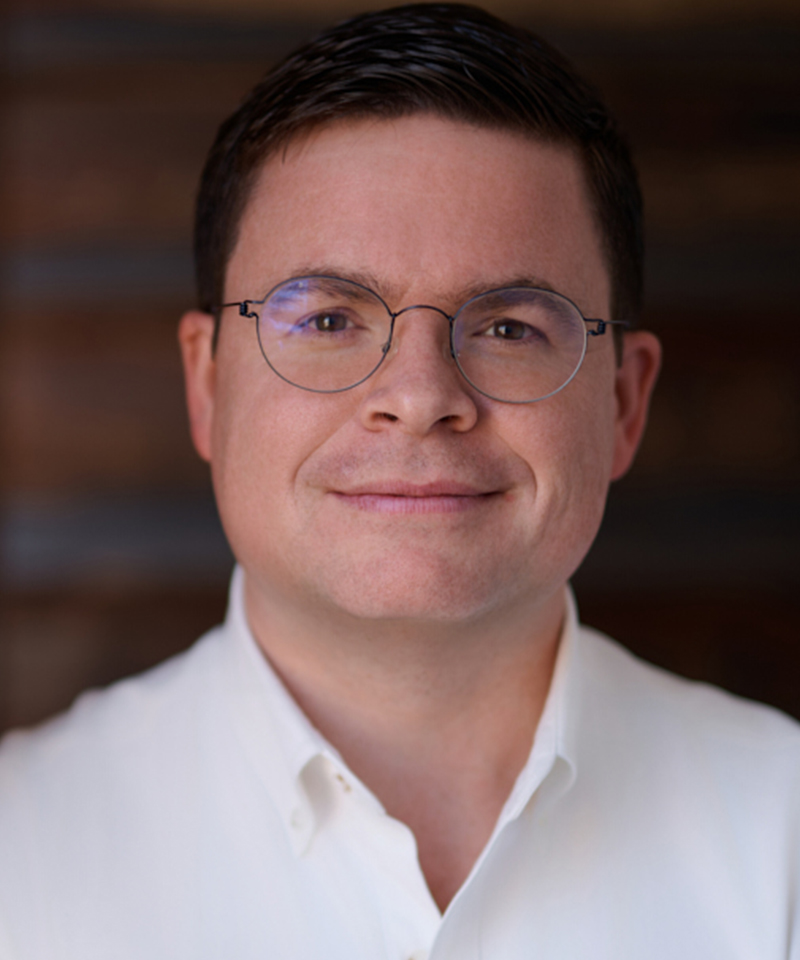
Jimmy Goodrich is a leading expert on technology, geopolitics, and national security with a focus on China and East Asia. He is a senior advisor for technology analysis at the RAND Corporation and a senior fellow at the University of California Institute on Global Conflict and Cooperation (IGCC), where he works on research regarding China, technology, and national competitiveness.
Jimmy was previously the vice president for global policy at the Semiconductor Industry Association (SIA), where he led the industry’s supply-chain, international trade, export control, global market research, and China efforts. His work at SIA included research on Chinese industrial policy and chip industry economics, efforts to successfully secure $52 billion in funding for the CHIPS & Science Act, and navigating complex multi-national export control and other national security issues. Jimmy was also the director for China policy at the Information Technology Industry Council (ITI) in Washington, D.C.

Ryan Hass is director of the John L. Thornton China Center and the Chen-Fu and Cecilia Yen Koo Chair in Taiwan Studies at Brookings. He is also a senior fellow in the Center for Asia Policy Studies. He was part of the inaugural class of David M. Rubenstein fellows at Brookings, and is a nonresident affiliated fellow in the Paul Tsai China Center at Yale Law School. Hass focuses his research and analysis on enhancing policy development on the pressing political, economic, and security challenges facing the United States in East Asia.
From 2013 to 2017, Hass served as the director for China, Taiwan and Mongolia at the National Security Council (NSC) staff. In that role, he advised President Obama and senior White House officials on all aspects of U.S. policy toward China, Taiwan, and Mongolia, and coordinated the implementation of U.S. policy toward this region among U.S. government departments and agencies. He joined President Obama’s state visit delegations in Beijing and Washington respectively in 2014 and 2015, and the president’s delegation to Hangzhou, China, for the G-20 in 2016, and to Lima, Peru, for the Asia-Pacific Economic Cooperation (APEC) Leaders Meetings in 2016.
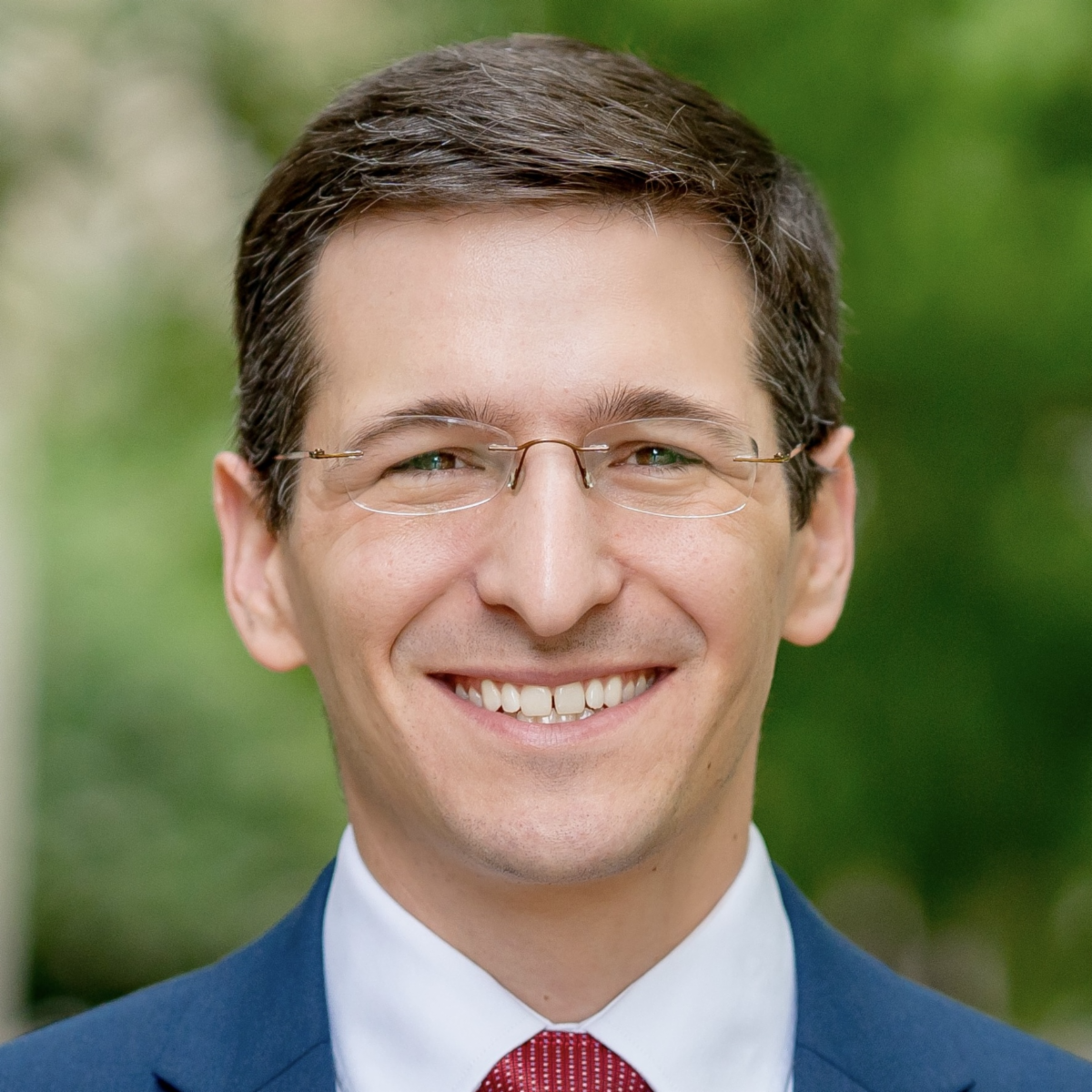
Zack Cooper is a senior fellow at the American Enterprise Institute, where he studies US strategy in Asia, including alliance dynamics and US-China competition. He also teaches at Princeton University and serves as chair of the board of the Open Technology Fund. He is currently writing a book for Yale University Press that explains how militaries change during power shifts.
Before joining AEI, Dr. Cooper was the senior fellow for Asian security at the Center for Strategic and International Studies (CSIS). He previously worked as codirector of the Alliance for Securing Democracy and senior fellow at the German Marshall Fund of the United States and research fellow at the Center for Strategic and Budgetary Assessments. He also served as assistant to the deputy national security adviser for combating terrorism at the National Security Council and as a special assistant to the principal deputy under secretary of defense for policy at the Department of Defense.
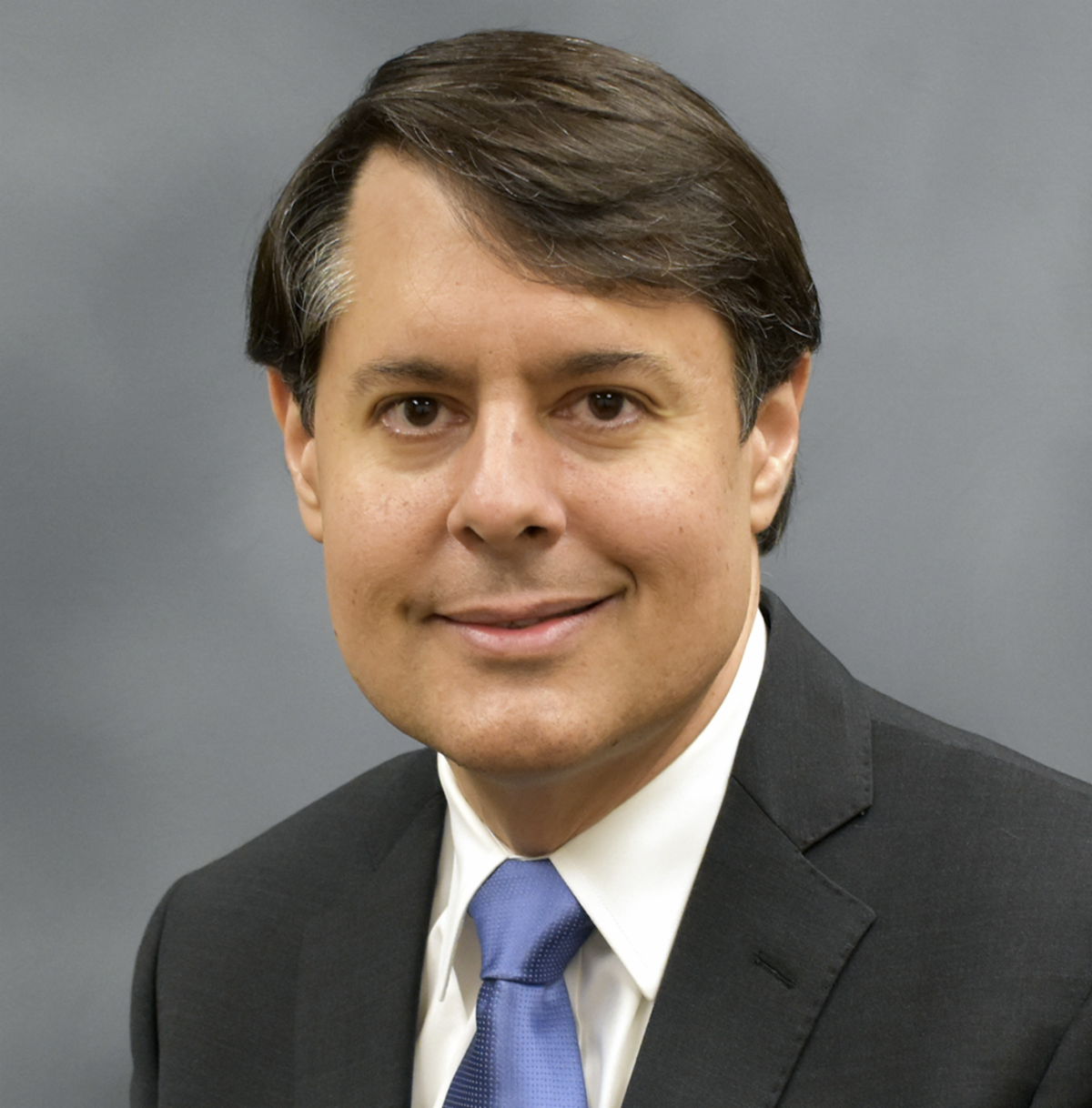
Glenn Tiffert is a distinguished research fellow at the Hoover Institution and a historian of modern China. He co-chairs Hoover’s program on the US, China, and the World, and also leads Stanford University’s ’s participation in the National Science Foundation’s SECURE program, a $67 million effort authorized by the CHIPS and Science Act of 2022 to enhance the security and integrity of the US research enterprise.
Tiffert is a specialist on the histories of the People's Republic of China and the Chinese Communist Party. He also collaborates closely with government and civil society partners around the world to document and build resilience against authoritarian interference with democratic institutions. He works extensively on the security and integrity of ecosystems of knowledge, particularly academic, corporate, and government research; science and technology policy; and malign foreign interference.
ABOUT THE MODERATOR
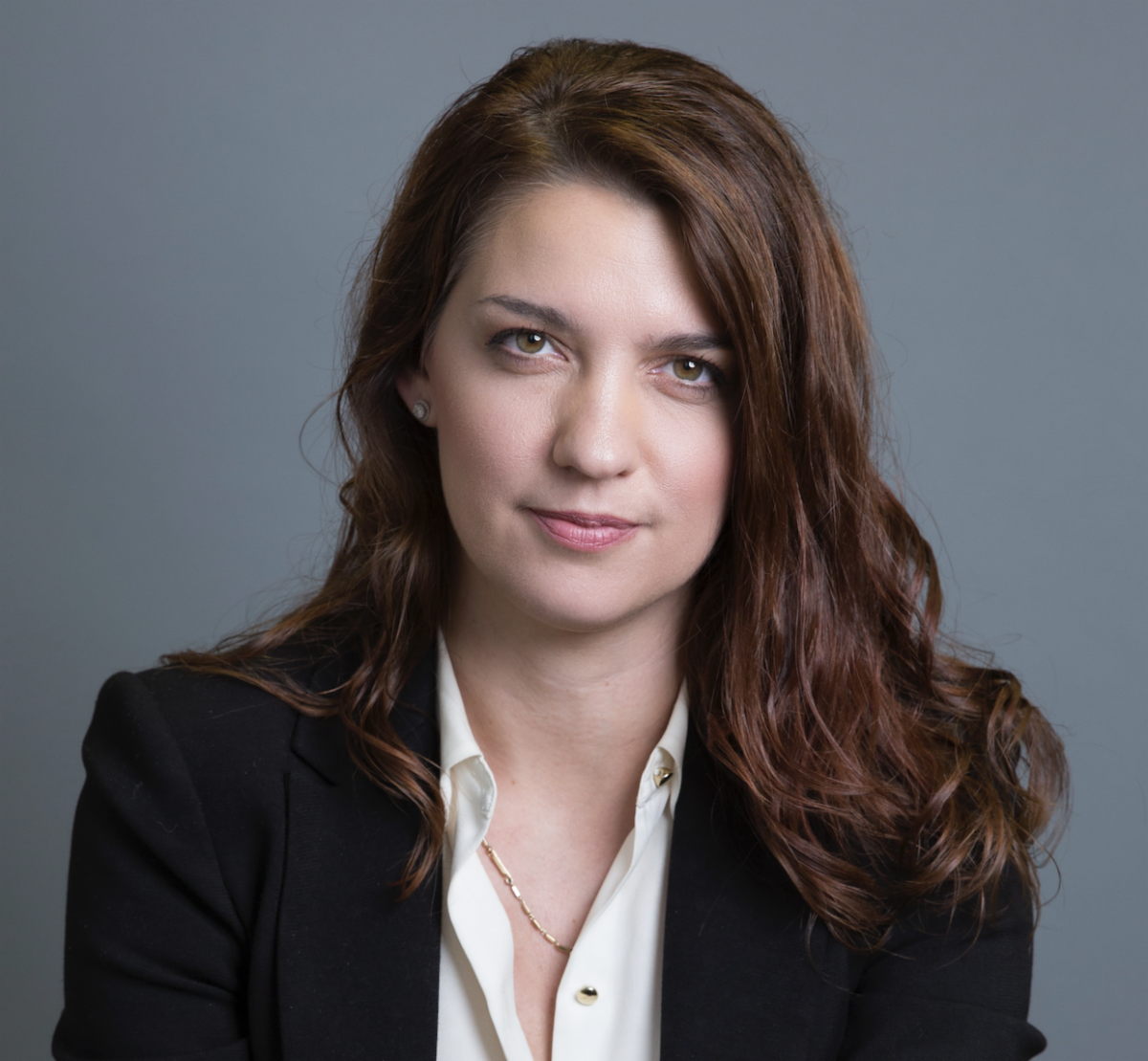
Jacquelyn Schneider is the Hargrove Hoover Fellow at the Hoover Institution, the Director of the Hoover Wargaming and Crisis Simulation Initiative, and an affiliate with Stanford's Center for International Security and Cooperation. Her research focuses on the intersection of technology, national security, and political psychology with a special interest in cybersecurity, autonomous technologies, wargames, and Northeast Asia. She was previously an Assistant Professor at the Naval War College as well as a senior policy advisor to the Cyberspace Solarium Commission.
Dr. Schneider is an active member of the defense policy community with previous positions at the Center for a New American Security and the RAND Corporation. Before beginning her academic career, she spent six years as an Air Force officer in South Korea and Japan and is currently a reservist assigned to US Space Systems Command. She has a BA from Columbia University, MA from Arizona State University, and PhD from George Washington University.






